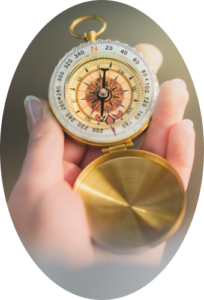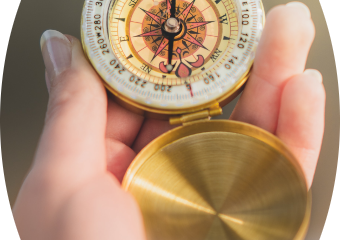Research shows that self-compassion is associated with emotional resilience, stronger self-reflection, great caring / involvement in relationships, and less narcissism. According to Kristin Neff, recognized as one of the world’s leading experts on self-compassion, self-compassion is even more important than self-confidence.
Self-compassion is being kind to yourself, without judging. Who ever said you were supposed to be perfect? (Kirstin Neff)
 My experience is that taking care of yourself makes it easier to stand firmer in difficult situations and at the same time accept your humanity in all mildness. The difficulty is that the way we look at things is often coloured by beliefs and prejudices. Moreover, we tend to want to meet the expectations of society and our environment, and we regularly let our inner critic do the talking. In doing so, we harden ourselves.
My experience is that taking care of yourself makes it easier to stand firmer in difficult situations and at the same time accept your humanity in all mildness. The difficulty is that the way we look at things is often coloured by beliefs and prejudices. Moreover, we tend to want to meet the expectations of society and our environment, and we regularly let our inner critic do the talking. In doing so, we harden ourselves.
Self-confidence
Self-confidence and self-assurance are close to each other. They are often externally directed – for example, when you are focused on success, or when you compare yourself to others. However, self-confidence can also turn into egocentric tendencies by showing little self-reflection, not listening well, or by putting others down to make yourself feel better. This makes self-confidence an unstable factor.
Self-compassion
Self-compassion, on the other hand, comes from within. It is independent of external circumstances. You can see self-compassion as a form of looking into your heart with the aim of being kinder to yourself. Something that makes you stronger and less dependent on circumstances, regardless of the situation. The more you open your heart to this reality, the more compassionate you become towards yourself, others, and life itself.
Compassion for yourself is actually no different than having compassion for others. (Kirstin Neff)
Hard on yourself
The tricky thing is that from an early age, we have learned to fit into a certain pattern of expectations and to be critical of ourselves. We have learned to adapt to our environment and to live according to ‘how things should be’. This protects us from criticism by others, from being excluded or not being good enough, and so on. But criticism is by default linked to judging something or someone. However, as soon as you have a judgement, you reject something. In other words, as long as you judge yourself, you reject yourself, and remain hard on yourself.
Kind to yourself
The strong thing about self-compassion, I think, is that it is calming (stress-reducing). The moment you stop viewing your behaviour, thoughts, feelings and situations from negative or judgmental sentiments, and start addressing them from kindness or gentleness, it becomes easier to observe a situation “more objectively” and without judgment. This makes it easier to handle things better / more effectively. Also in future situations. In addition, self-compassion is a tool to support, comfort, or motivate yourself.
Compassion for yourself is like a smile from the heart to yourself. It softens things up by adding mildness. (Yael van Assendelft)
Self-compassion as your guide
 The ability to address behaviour, thoughts, feelings, and situations with kindness and non-judgmentalism requires, among other things, letting go of all kinds of learned or adopted (reaction) patterns. It is also about realising that things are not about being right or wrong. But to approach them with openness and clarity, and to hold them in an attentive ‘neutral’ awareness.
The ability to address behaviour, thoughts, feelings, and situations with kindness and non-judgmentalism requires, among other things, letting go of all kinds of learned or adopted (reaction) patterns. It is also about realising that things are not about being right or wrong. But to approach them with openness and clarity, and to hold them in an attentive ‘neutral’ awareness.
Despite a great sense of responsibility and self-criticism, I took on this challenge. It was a journey of surrender, of trial and error. But I am so glad I faced it. One of the things it has given me is that I feel freer in my actions. I can more clearly discern what is right for me without emotions or feelings getting in the way or taking over. I experience adding mildness to be a reliable and valuable guide.
Where to start?
I think it is the easiest to start with what gets in your way the most. You can also start with being more alert to moments of irritation and then look into your heart and, as it were, give the irritation a smile or a hug. The goal is to soften your feelings or reactions, to be less judgmental, and more understanding for yourself and others.
It is a matter of finding out what works best for the best effect. Or as Kirstin Neff indicates, when struggling, failing, or noticing something you don’t like about yourself, ask yourself ‘ How can I comfort and care for myself in this moment? ‘ .
Tip: Self-Compassion Exercises by Dr. Kristin Neff
Wishing you mildness on your path,
Yael
(This text is based on an article Yael van Assendelft wrote for the Dutch website menscentraal.nl in 2011.)
Read More

